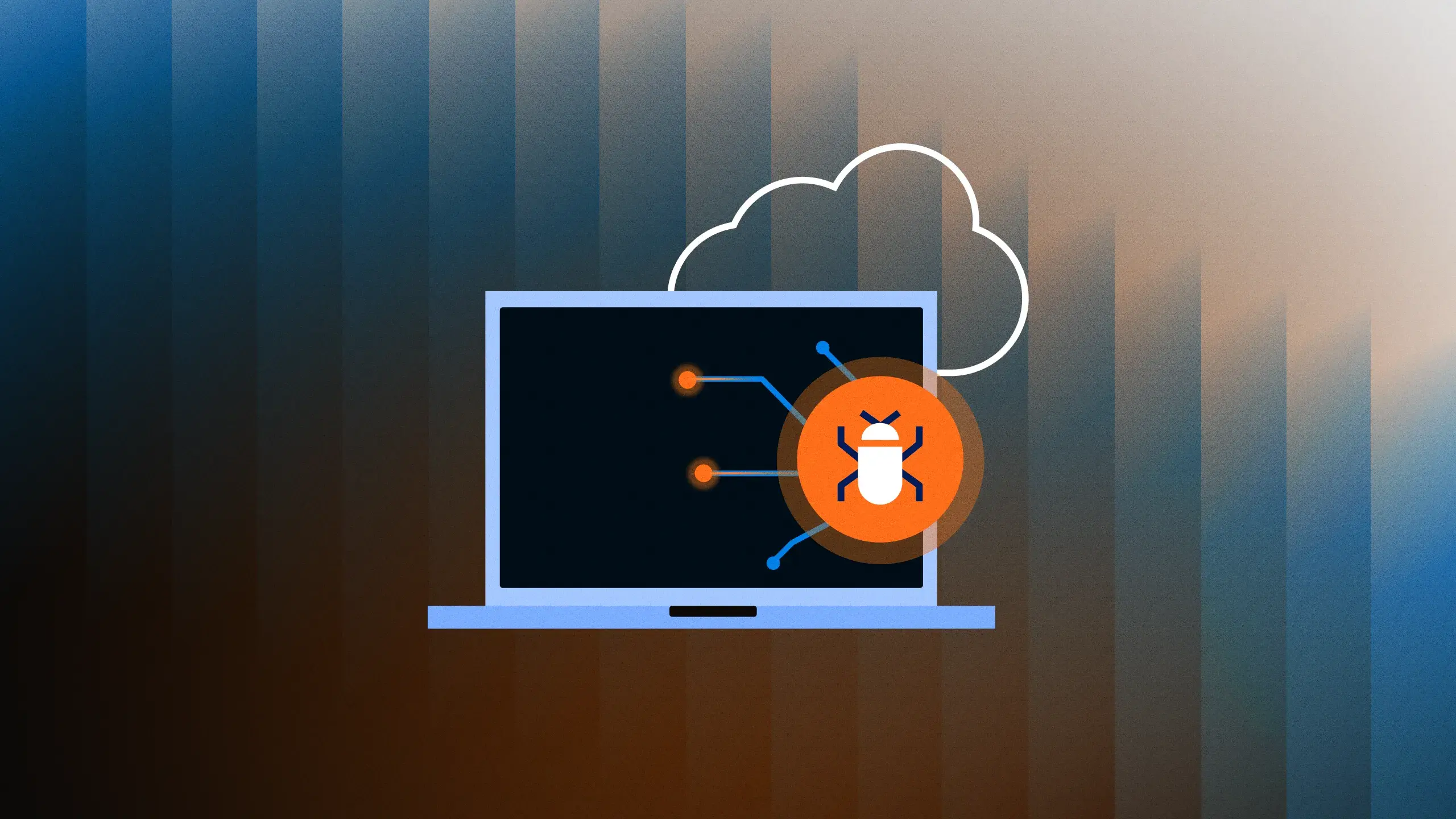Resource center
Access helpful resources and the latest insights on emerging threats, cybersecurity best practices, cyber insurance, and more.
Q2 '23 Ransomware Report PDF: Global Attacks At All-Time High
Cyber and Financial Services: Living with a Target on Your Back
Cyber and Manufacturing: If You Build It, Threat Actors Will Come
Kickstarting Your Security Program: Leveraging NIST CSF Version 1.1
Cyber Insurance Defined: Traditionally, and Now
What’s Next in Cyber: 3 Trends Cyber Underwriters Are Seeing
Cyber Coverage Explained: Sub-limits and Coinsurance
3 Ways Threat Actors Will Kick Off the New Year
Black Basta Ransomware Has Extracted Over $100 Million From its Victims
Another Record-Breaking Month for Ransomware: November Up 110% YoY
Cyber and Healthcare: Treating the Rise of Ransomware
Key Ransomware Indicator Up 56% Year-on-Year: October Data
Decrease in Ransomware at the Start of the Russian Invasion of Ukraine
August Ransomware Recap: Sixth Month in a Row with YoY Increase
Record Ransomware Attacks: 6-Month Upward Trend Continues in July
While Leaves Fall, Ransomware Rises: Attacks Are Up 5.1% in September
Corvus Interview: Modern Cyber Warfare with John Hultquist
The Ransomware Handbook: Cybercriminals in the News
Cyber Threats: 2022 in Review (& What to Expect from 2023)
Cyberwarfare in Ukraine: One Year of Observations
Q2 '23 Ransomware Report: Global Attacks At All-Time High
Modern Warfare & Cyber Risk: Cybercrime, Sanctions Impact & More
Corvus Claims Data Infographic - December 2023
Corvus Risk Insights Index: Q2 2023 Edition
Corvus Risk Insights Index: Q4 2022 Edition
Attack Analysis: The Latest on Kaseya and PrintNightmare
Palo Alto Networks VPN Vulnerability
Q1 '24 Ransomware Report: Ransomware Groups Don’t Die, They Multiply
Change Healthcare Hack: Everything You Need To Know
Law Enforcement Can Help in a Cyber Crisis — But Prevention is Even Better
Q4 '23 Ransomware Report: 2023 Ends as a Record-Breaking Year
Corvus Risk Insights Index: Q1 2022 Edition
2021: Corvus Risk Insights Index
Q4 2023 Cyber Vulnerability Report and Impact
Q3 2023 Cyber Vulnerability Report and Impact
Q2 2023 Cyber Vulnerability Report and Impact
Q1 2023 Cyber Vulnerability Report and Impact
GitLab Vulnerability Alert | January 2024
Ivanti Connect Secure Vulnerability Alert | January 2024
Jenkins Vulnerability Alert | January 2024
GoAnywhere Vulnerability Alert | January 2024
Confluence Data Center Vulnerability Alert | January 2024
ScreenConnect Vulnerability | February 2024
Fortinet Fortigate Vulnerability Alert | February 2024
Palo Alto GlobalProtect Vulnerability | April 2024
CDK Global Incident | June 2024
Q1 '24 Ransomware Report PDF: Ransomware Groups Don’t Die, They Multiply
Record Ransomware Attacks: June 2023 Highest Month Ever
Rising Tide of Ransomware Attacks: Current and Future Trends
Ransomware Attacks Remain High: May 2023 Continues Increased YoY Trend
Ransomware Update: April 2023 Takes Spot for Third Highest Month
March 2023 Sees 60% Increase in Ransomware Attacks
Global IT Meltdown: CrowdStrike Software Update Causes Broad Outages
Q2 '24 Cyber Threat Report: Ransomware Season Arrives Early
Q2 '24 Cyber Threat Report PDF: Ransomware Season Arrives Early
Q2 '24 Cyber Threat Webinar
Q1 24' Ransomware Findings
Cyber Threats in 2024
Q3 24 Cyber Threat Report: The Ransomware Ecosystem is Increasingly Distributed
Q3 24 Cyber Threat Report PDF: The Ransomware Ecosystem is Increasingly Distributed
Analyzing Q3 2024 Ransomware Activity
November 2024: A Record-Breaking Month for Ransomware Attacks
Cleo File Transfer Alert | December 2024
Fortinet Vulnerability | January 2025
Q4 2024 Travelers' Cyber Threat Report: Ransomware Goes Full Scale
Q4 2024 Travelers' Cyber Threat Report PDF: Ransomware Goes Full Scale
Social Service Agency Avoids Potential Ransomware Attack
Healthcare Provider Targeted in Spear Phishing Attack
Cyber and Financial Services: Living with a Target on Your Back
Cyber and Manufacturing: If You Build It, Threat Actors Will Come
Navigating Regulatory Changes: A Look into the NYDFS Cybersecurity Regulation
Three Tactics to Combat Next-Gen Social Engineering Schemes
Kickstarting Your Security Program: Leveraging NIST CSF Version 1.1
Generative AI is here. How does it impact cyber insurance?
The Privacy Problem: A Conversation on Pixel Tracking with Experts from BakerHostetler
A Tale of How Business Email Compromise Attacks Work
Data Science Insight: How VPN Vulnerabilities Affect Ransomware Risk
Common Cyber Insurance Myths, Debunked
How Healthcare is Responding to New Guidelines for Pixel Tech
Cyber Risk, IT Tools & Ransomware Trends: Pre-Pandemic to 2021
How Our Policyholders Avoid Vulnerability Patching Paralysis
Ransomware Groups Want to Exploit Your File Transfer Software
Can Cyber Risk Prevention Really Work? Yes, And Here’s How
Tracking Pixel Technology: Everything You Need To Know
Cyber Insurance Coverage & Terminology Guide
A Chilling Tale of How Data Exfiltration Attacks Happen
Emerging Risks for Tech E&O Clients in 2025
Your Survival Guide to the DDoS Resurgence
Mitigating Vendor Risk: Three Steps to Protect Your Organization
The ABCs of 3-2-1 Backup Plans
Cyberattack Prevention Month
When AI and Insurance Collide
Pixels and Ad Tech: Learning the Liabilities and Mitigating Risk
The 3 Keys to a Successful Cyber Incident Response Strategy
How We Use AI to Better Understand Tech E&O Risk (Part I of II)
How We Use AI to Better Understand Tech E&O Risk (Part II of II)
Not-quite-CAT: Exploring Aggregate Cyber Risk in SaaS Providers & VPNs
Client Breach Response: The Impact of Capital One’s Legal Battle
BYOD: Does A Cyber Insurance Policy Cover Remote Workers?
Cybersecurity Strategies for Small- and Medium-Sized Businesses
Prioritize Patching with Risk-Based Vulnerability Management
Microsoft Exchange: Where We Are Now
Energy & Utilities Companies: Custom Reports Improve Cyber Hygiene
Tech Companies: Beyond Cyber Risk, the Cost of Downstream Impact
Graph Your Dependencies: Facebook Outage Proves 'Simple' Doesn’t Work
Cyber Hygiene for Public Utilities: Why to Take Action Now, and How
Keeping up with Cybercriminals: The Future of Online Threats
Small Businesses: How to Improve Your Security on a Budget
Cyber and Construction: Laying Groundwork to Combat Digital Threats
Cyber Insurance for Small Businesses: BOP vs. Standalone Cyber
The Crucial First 48 Hours: Navigating Business Continuity and Disaster Recovery
Keep It Real: Avoid Falling for the Rise of Deepfake Phishing Scams
How Inside-out Insights Shape Cyber Risk Assessment
What are DDoS attacks?
What are Resilient Backup Solutions?
What is Endpoint Detection and Response?
Incident Response Done Right
Working with Your Cyber Insurer: Incident Response
The Ultimate Guide to a Vendor Data Breach Response
Privacy Best Practices for Tech Companies
Calls from the Wild: Stories of Risk + Response at Corvus
What is Multi-Factor Authentication?
Guide to Multi-Factor Authentication
Mitigating Vendor Risk
Handling Cyber Objections: 'Cyber Insurance Is Too Expensive'
What is a Telnet vulnerability?
What is an SMB vulnerability?
What is a Bluekeep vulnerability?
What is RDP and why is it a security concern?
Unpatched Microsoft Exchange Server Vulnerabilities
A Guide to Multi-factor Authentication (MFA)
A Guide to Vulnerability Management
A Guide to Zero Trust Network Access (ZTNA)
How to Take Email Security to the Next Level
A Guide to Mitigating Infostealer Malware
HTTP Security Headers Best Practices
A Guide to Internal Governance, Risk, and Compliance
A Guide to Threat Detection
How to Respond to a Cyber Incident
A Guide to Securing Access Controls
A Guide To Securing Email at Your Organization
A Guide to MFA Bypass Attacks
A Guide to Data Encryption
A Guide to Funds Transfer Fraud
Best Practices for Securing Vendors
A Guide to Security Controls For Cloud-Based Organizations
A Guide to Common Vulnerabilities and Exposures (CVEs)
A Guide to Endpoint Detection Response (EDR)
Navigating Third-Party Risk: A Key Component for Business Resilience
Best Practices for Managing Cyber Risks in Open-Source Software
FAQ
Frequently asked questions
Your cyber insurance provider is an important partner in mitigating security threats. Every Corvus policy includes access to Travelers Cyber Risk Services, the only cyber risk mitigation solution proven to reduce risk. Policyholders engaged with Cyber Risk Services have experienced up to a 20% reduction in the frequency and cost of cyber breaches. Policyholders also gain access to unlimited consultations with cyber experts, real-time intelligence on emerging threats, and easy-to-use tools to manage security risks.
Our Smart Cyber Insurance® policy covers losses resulting from a security breach or cyber crime event, including: first-party losses, or losses suffered by your company (for example, income loss or digital asset loss) and third-party losses (amounts that your company is legally obligated to pay to others).
Contact your commercial insurance broker and ask them about cyber liability coverage. Corvus' offerings are available via select appointed agencies around the country. Our expert cyber underwriters work hand-in-hand with brokers to provide fast, accurate, and fully customized cyber insurance quotes.
The cost of cyber insurance premiums varies depending on the type and size of the business insured. Annual premiums start at around $2,000.

